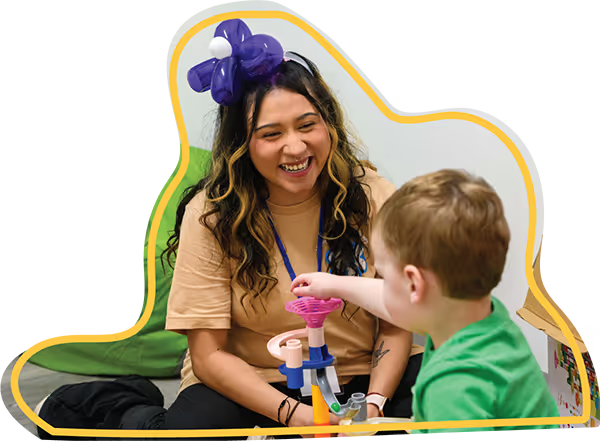Is it too early to tell?
It's not. And it matters.
You may not be able to name it—but you feel it. Maybe your child is struggling in ways that are hard to explain. Maybe a teacher raised a concern. Maybe they’re meeting milestones, but something still doesn’t feel typical. That’s not something to brush aside—it’s something to honor.
Many parents wait and wonder, but early support can make all the difference.
"We know that parents first have concerns about autism around the age of 14 months, but most kids don’t get diagnosed until they are over 4. The earlier you know, the more time you have to support the way your child learns best."


Private Autism Testing vs. IL Early Intervention: What’s the difference?
Illinois' Early Intervention (EI) program is an amazing resource for children ages 0–3 with developmental delays. But EI doesn’t provide a formal diagnosis of autism—and without one, families may miss out on therapies, school supports, or insurance coverage that can make a big difference, especially after aging out of EI at the age of 3.
You can do both!
Many families we work with are already in Early Intervention when they come to us. The two services can work beautifully together. Early Intervention helps your child grow. A neuropsychological diagnosis helps you unlock the full range of support—especially post-EI, and gives you more paths for lifelong support.
Medical, Educational Autism Diagnoses, and EI: What's the difference?
We're here to help you understand how they work—and what your child may need.
Medical Diagnosis from a Neuropsychologist or Developmental Pediatrician
This is the formal, clinical diagnosis that follows DSM-5 criteria and opens up doors for comprehensive support services.
- Insurance coverage (especially for ABA therapy)
- Accessing private therapy services
- Supporting medical documentation for IEPs or school accommodations
ADOS-2 Assessment Administered by a BCBA
While some providers administer the ADOS as part of their intake process, these results cannot be used as a medical diagnosis without additional review and signature from a qualified diagnosing physician.
- Internal ABA treatment planning
- Informal support discussions with families
- Can create confusion for families expecting a diagnosis
- Cannot be used to access school-based services, insurance-covered ABA, or formal supports
- May delay access to appropriate diagnostic care if misunderstood as sufficient
EI "Eligibility" (Early Intervention Diagnosis)
Early Intervention in Illinois does not give formal diagnoses—it determines eligibility for support.
Educational Assessment (School District)
This determines whether a child qualifies for school-based autism support—not whether they meet the clinical criteria.
- IEPs (Individualized Education Plans)
- School accommodations or classroom support
How an Evaluation Can Help


You don’t have to navigate this alone. A neuropsychological or autism evaluation offers more than just a diagnosis—it provides insight, support, and a roadmap.
Our compassionate team works with you to understand your child’s unique strengths and needs, giving you answers that guide meaningful next steps, whether that’s therapy, school support, or simply peace of mind.
If you’re noticing signs or have questions, trust your gut. We’re here to listen and help you find the clarity you deserve.

